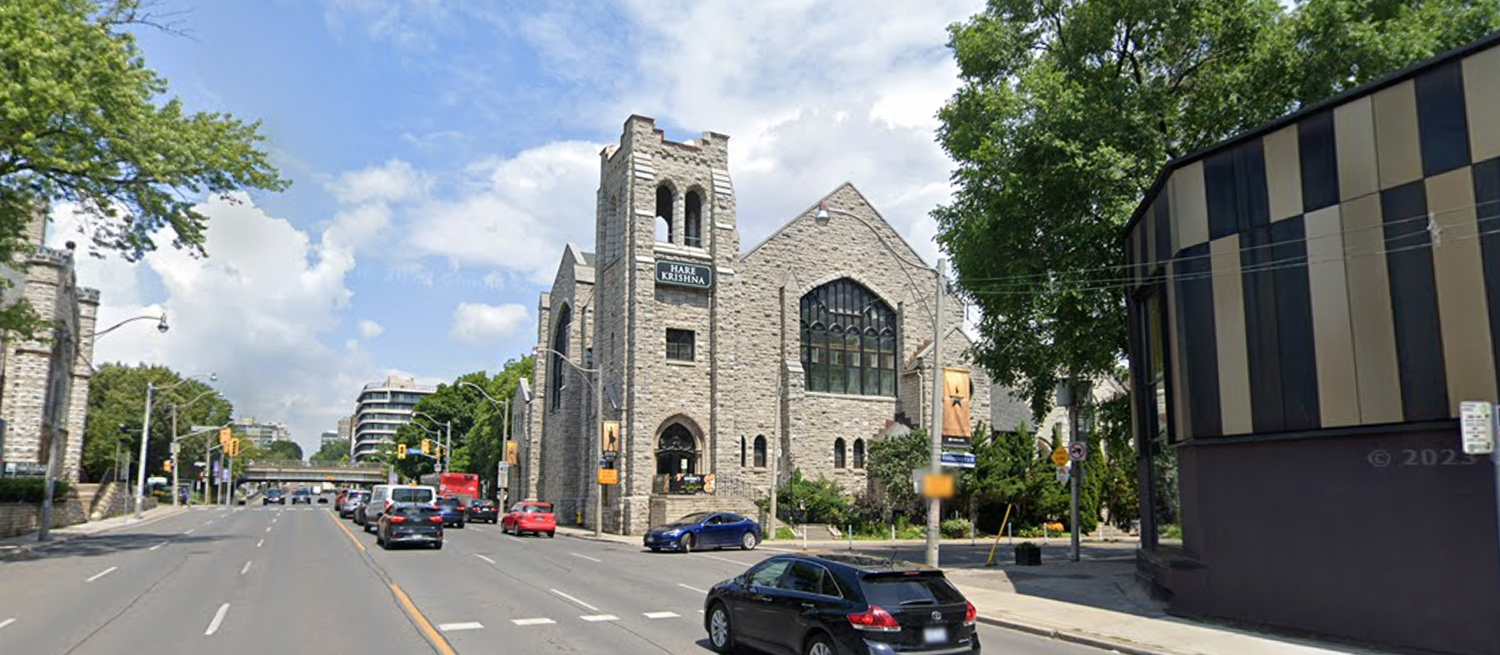Near where we now live in the Annex is a church building you probably know as the Hare Krishna Church. I was stunned to discover recently that two giants in Canadian church history once preached there. Charles Templeton took over a building abandoned by Avenue Road United Church and converted it into a fast-growing evangelical church, before later losing his own faith. A.W. Tozer pastored it as Avenue Road Alliance Church while becoming one of the Canadian church’s best-selling authors. One could trace the whole history of North American faith in that progression from mainline to abandoned to evangelical to lost faith and back to the largest Hare Krishna gathering in Canada.
Churches start differently now. A congregation I admire called Freechurch began as a Pentecostal startup called Freedomize. The Mennonite Brethren—not the German farmers in beards and suspenders but church planters committed to growth in urban areas—funded it not once but twice. The wisest church growth folks emphasize loving your neighbours—whether it “works” or not, it’s the Jesus thing to do. Well, what if those neighbours are aggressively post-Christian, hostile to faith, and uninterested in Jesus, such as in spectacularly cosmopolitan Canadian cities? One approach would be to go just as aggressively over-against, and attract angry people. Another would be to be vague, avoid conflict, and hope for the best. A third would be to listen to those neighbours and become something new together.
I saw churches in Vancouver try each of these strategies. Going over against can yield dividends in the form of money and attendance. Being vague generally will not. The creative church planters and re-planters listened to and loved their neighbours and built a different sort of church. In Vancouver, that often meant reaching out to the queer community, not necessarily to attract gay people (many of whom have had quite enough attention from the church, thank you very much), but to reassure everyone else no one will embarrass them in front of their friends. That outreach often threatened the very funding source that first sent them to those neighbourhoods.
FreeChurch is pastored by Jon Osmond, whose lifelong friend David Larmour I have often bumped into in our work with the Jewish community from his post at King Street Church in Oshawa. FreeChurch has a pastoral staff of four, including a youth pastor who is a woman of colour who studied at Tyndale Seminary, like our beloved former staffer Nupur James-Araujo. While FreeChurch hasn’t “figured out” how to reach the elusive next generation that every church covets, they are doing better than most, with some 20 children attending out of their average of 120 per Sunday. They don’t have paid musicians, and they don’t have a building of their own.
I’m telling you about FreeChurch because they have lost their rental space. The Centre for Social Innovation realized that folks are renting now, post-covid, so they started renting FreeChurch’s space out from under it on Sunday mornings, including all Sundays but one in April (including Easter). Their space in the Annex is existentially quite far from ours in midtown on St. Clair, but geographically not that distant. Our auditorium space will work for their worship needs from 10:30-noon on a Sunday. They are not offering to break their bank in rent, nor to float our coffers with it, though they will pay us some rent. They promise not to use our parking lot—they have no parking now, and half their folks transit or cycle in anyway. They need three Sunday School rooms, which we have unused on Sundays, and a closet space-sized storage room.
Our council has decided to let FreeChurch rent space from us from April to June for three months as a trial period while we consider longer-term possibilities. It is good to help a sister church in need of space suddenly at Easter, but the more pressing rationale is this could blossom into an interesting missional partnership. FreeChurch is now a member of the Mennonite Church of Eastern Canada, which is more obliging to the very LGBTQ+-inclusive sense of mission that alienated their original funders. They have arrived at their convictions about gay inclusion partly by in-depth study of scripture (which says nothing about lifelong monogamous fidelity between same-gendered persons), partly by singular worship of Jesus (whose marriage record broke with convention in his day, and ours) and partly by love of their neighbourhood.
Our two churches have much to learn together about children and youth ministry, about making our auditorium space more attractive for gathering, about missional love of the neighbourhood instead of a Christendom-era attempt to be ‘all things to all people,’ or to control neighbours rather than loving them.
Making room for more at the table is not always easy. Nothing worth trying is guaranteed to succeed. Our parking situation is already a hassle, and we will likely hear their music as we go in and out of coffee time. But we need not fear complaints. The only way to avoid complaints is to take no risks.
What would success look like in this partnership? Well, friendship could lead to mutual mission and fruitful cooperation. I am grateful for council’s willingness to enter into a missional partnership with FreeChurch, to see what we can learn together about them, about ourselves, and about God.




